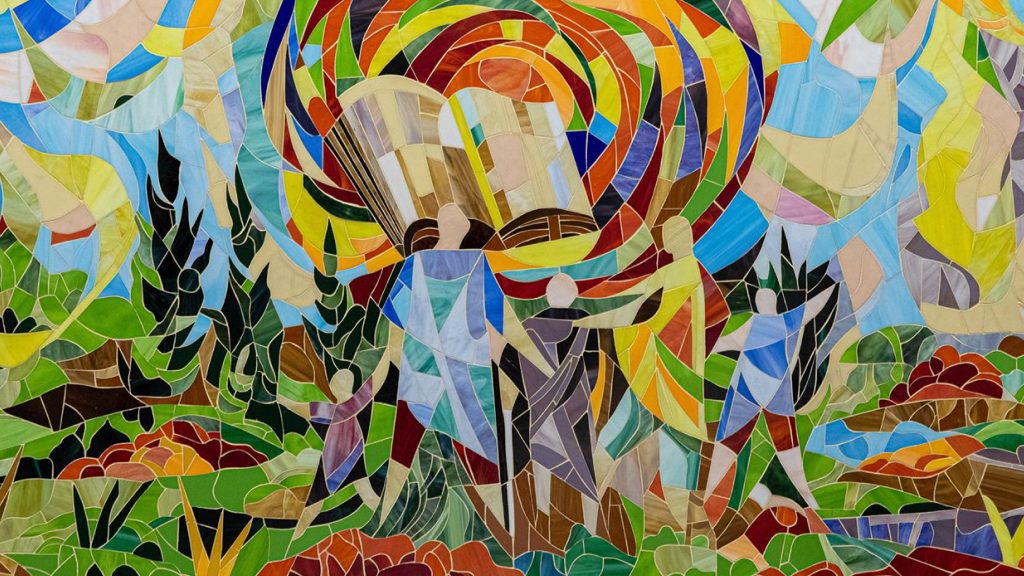I have never been inside my son’s apartment in Los Angeles but I stare at the door from time to time hoping to see a glimpse of him…on Amazon. Often when he has something delivered, I will look at the picture the delivery driver posts of the arrived package and hope to see Noah. All I have seen so far is the door and the gate but I hope one day I’ll see a foot or an arm reaching for the delivered package. I am so happy for my son that he is pursuing his dreams, but I miss him enough that I seek out this glimpse.
Moses is about to make a delivery to the Promised Land
in the book of Torah we enter this week. But unlike detergent in an Amazon box, this delivery is of people and it is a different group of people than when the initial journey began 40 years earlier. This week’s Torah portion Devarim, takes us to the fifth and final book of Torah, Deuteronomy. It is a retelling of many of the events of the 40 years of wandering and will culminate in the death of Moses. This retelling that already starts to happen before Torah is even finished is modeling for us a characteristic Judaism wants us to strive for, a curiosity just beyond our sight and site.
Moses will not make it into the Promised Land. In taking the people through their 40-year journey he watches one generation pass on and the next generation prepare to enter the land of Israel that he will be denied. But unlike this mother staring at a photo on an app, Moses’ yearning to know what the people will go through once they cross the border without him is demonstrated in a preemptive reprimand. He tells them he knows they will go astray and go off the path and do wrong. This seems unkind and cruel at first. But in telling their future in such a harsh way, he is trying to inspire in them a different direction. They see Moses who is going to be deprived of entering the Promised Land and how much that breaks his heart. Moses is trying to elicit something in them by tugging at their heartstrings saying they will go astray down the road. And Moses explains going astray creates distance from G-d and in that distance lies indifference. And indifference is the oppositive of love.
So the retelling that happens in Deuteronomy is in some ways an attempt to bridge that distance by caring deeply enough about the journey of the Israelites from slavery to freedom from Egypt to Israel, to take a look at it again. And if they can take a second look again right at the time, all we who are out of sight and off site can still get the essence of the story; returning to read it and learn from it and not remaining indifferent. And dare we get indifferent, coming in just a few days on the Jewish calendar is a reminder of what happens when there is indifference and lack of love for
G-d, Torah and Israel. That reminder is in the form of the 9th of the Hebrew Month of Av on the Jewish calendar. With the same sadness that Moses has mourning not entering the Promised Land, the Jewish people mourn the destruction of the First and Second Temple in Jerusalem and subsequent tragedies that happened on the 9th of Av over history. In the retelling of these events, indifference dissipates and love is revived.
Shabbat Shalom,










